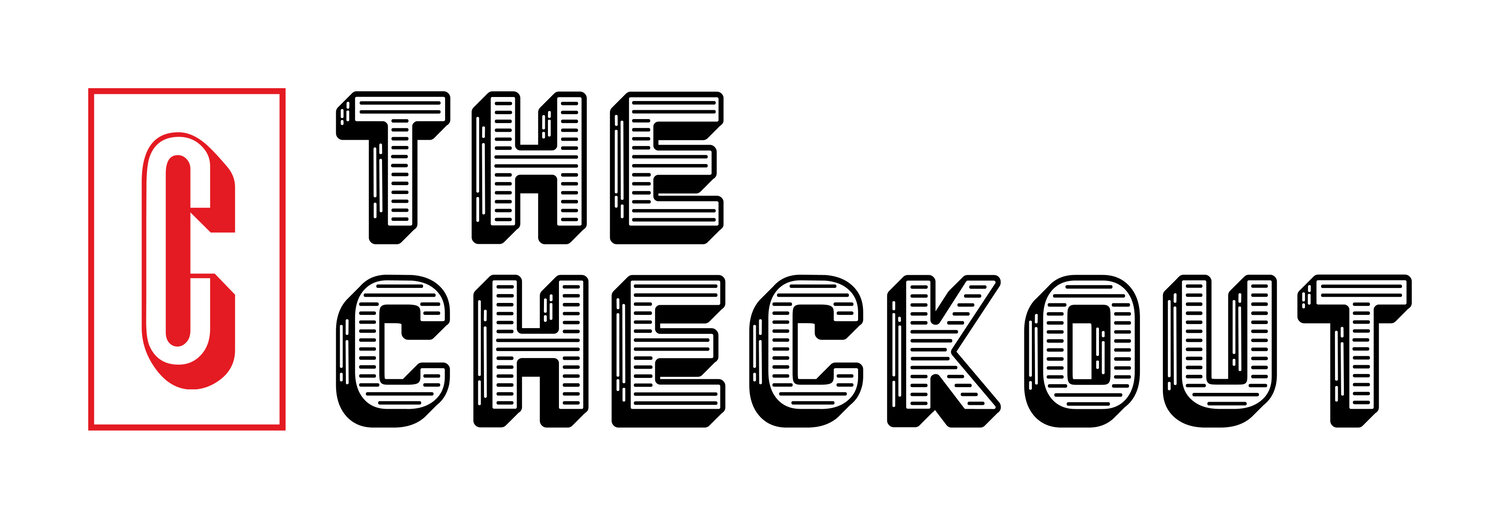Food. Justice. Work.
The Checkout centers the voices and efforts of essential workers on the frontlines of our food system. Now more than ever, our food system is in a constant state of flux, radical change and crisis. From political economy and supply chain analysis to public policy, labor organizing and community struggles, The Checkout will expand the horizon of what is necessary to create a just, equitable and progressive food system.
The Checkout is a proud member of the Labor Radio Podcast Network.

Episode 37: Amazon’s Racial Capitalism: The Cost of Free Shipping
Dr. Ellen Reese is Professor of Sociology and Chair of Labor Studies at the University of California, Riverside. Her research focuses on gender, race, and class, welfare state development, social movements, and poverty and work. She is author of They Say Cutback; We Say Fightback! Welfare Activism in an Era of Retrenchment (2011, American Sociological Association’s Rose Series) and Backlash Against Welfare Mothers: Past and Present (2005, University of California Press). She is also co-author of The World Social Forums and the Challenges of Global Democracy (2007, Paradigm Publishers) and co-editor of The Wages of Empire: Neoliberal Policies, Repression, and Women’s Poverty (2007, Paradigm Publishers) and A Handbook of World Social Forum Activism (2012, Paradigm Publishers). ellen.reese@ucr.edu
Dr. Jake Alimahomed-Wilson is a Professor of Sociology at California State University at Long Beach. His research explores the ways that racism and labor exploitation intersect. He is particularly interested in the global logistics industry and the workers who move goods around the world. His current research examines the impact of e-commerce (i.e. Amazon) on work and labor. His newest co-edited (with Ellen Reese) book, The Cost of Free Shipping: Amazon in the Global Economy, was released in 2020 by Pluto Press (Wildcat Series). This book provides a rich and interdisciplinary collection of critical essays by scholars, activists, and labor and community organizers that interrogates the global significance of Amazon’s rise and the growing popular resistance to it around the world. jake.wilson@csulb.edu
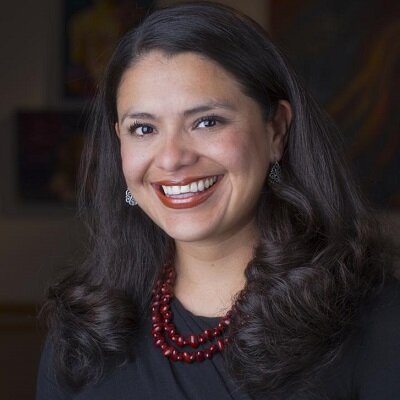
Episode 36: Montserrat Garibay
Reginaldo Haslett-Marroquin began working on economic development projects with indigenous Guatemalan communities in 1988. He served as a consultant for the United Nations Development Program’s Bureau for Latin America and as an advisor to the World Council of Indigenous Peoples. He was a founding member of the Fair-Trade Federation in 1994.

Episode 35: Marita Canedo of Migrant Justice on “Milk With Dignity”
https://migrantjustice.net/about The mission of Migrant Justice is to build the voice, capacity, and power of the farmworker community and engage community partners to organize for economic justice and human rights. We gather the farmworker community to discuss and analyze shared problems and to envision collective solutions. Through this ongoing investment in leadership development, members deepen their skills in community education and organizing for long-term systemic change. From this basis our members have defined community problems as a denial of rights and dignity and have prioritized building a movement to secure these fundamental human rights to: 1) Dignified Work and Quality Housing; 2) Freedom of Movement and Access to Transportation; 3) Freedom from discrimination; 4) Access to Health Care.
Milk With Dignity: https://migrantjustice.net/about-the-milk-with-dignity-program
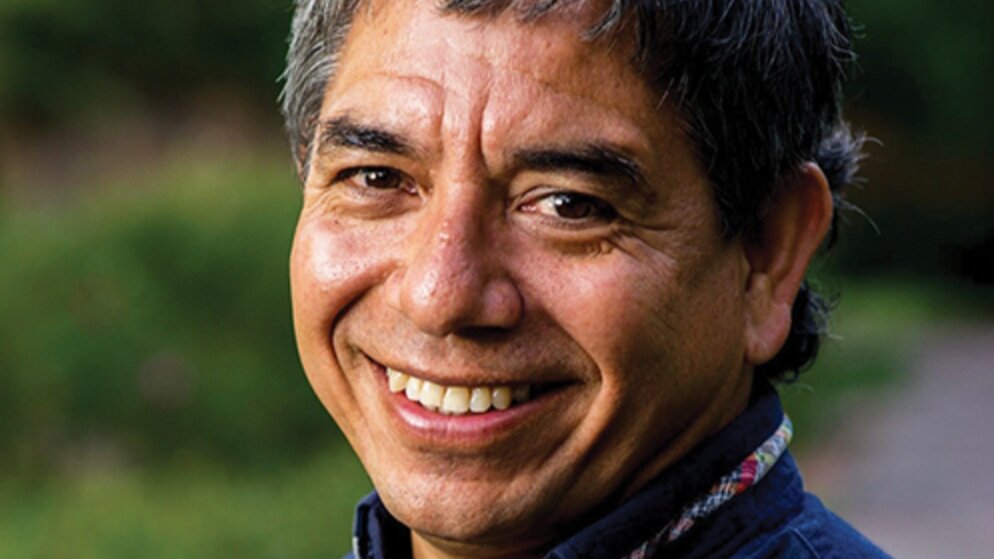
Episode 34: Reginaldo Hasslet-Marroquin: Decolonize and Indigenize Regenerative Agriculture
Reginaldo Haslett-Marroquin began working on economic development projects with indigenous Guatemalan communities in 1988. He served as a consultant for the United Nations Development Program’s Bureau for Latin America and as an advisor to the World Council of Indigenous Peoples. He was a founding member of the Fair-Trade Federation in 1994.
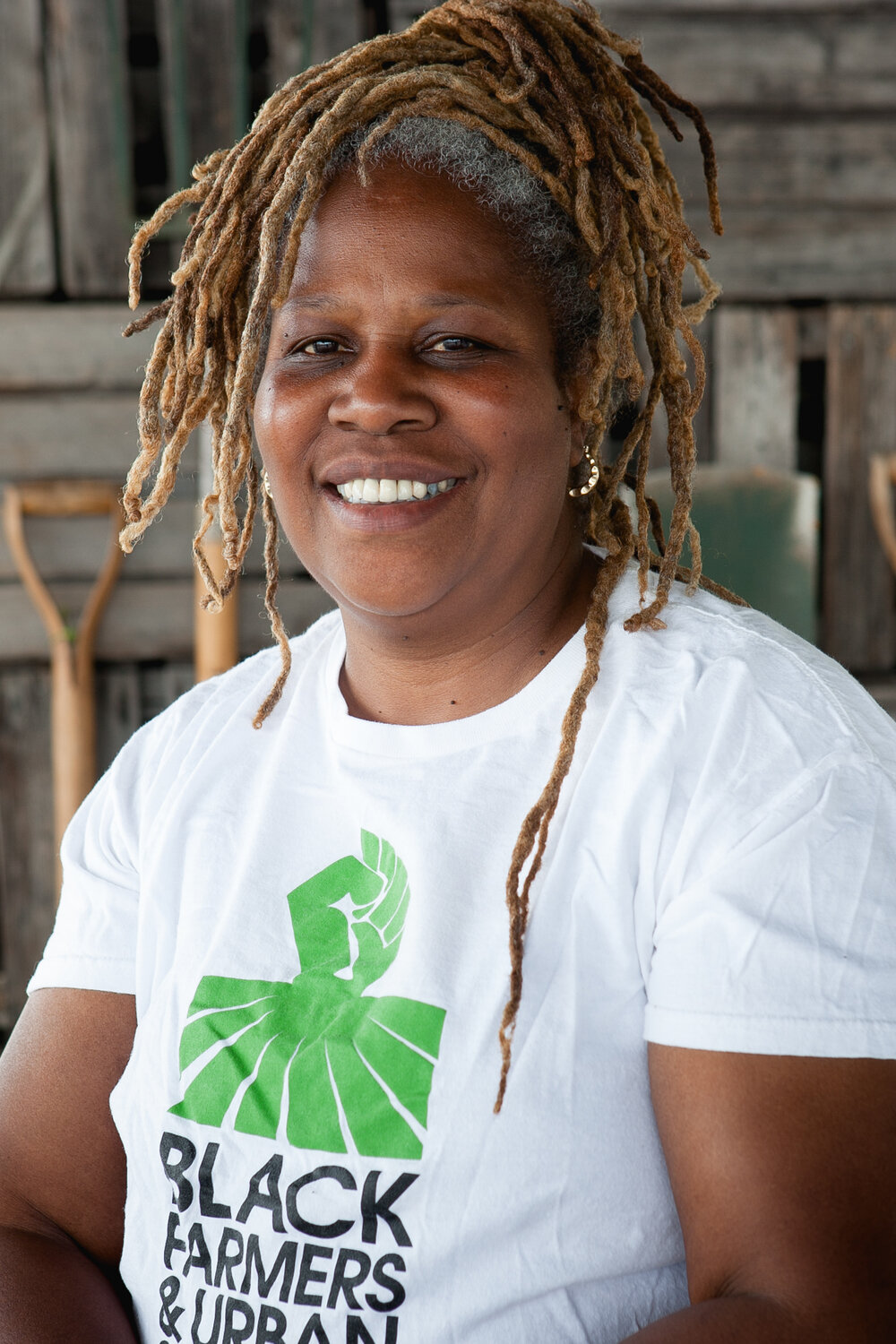
Episode 33: Karen Washington, on Farming, Food Justice and Community Organizing
Karen Washington has been a resident of The Bronx for over 26 years, although in 2015 she began living part time in Orange County, NY near the farm. Since 1985 Karen has been a community activist, striving to make New York City a better place to live. As a community gardener and board member of the New York Botanical Gardens, Karen worked with Bronx neighborhoods to turn empty lots into community gardens. As an advocate, she stood up and spoken out for garden protection and preservation. As a member of the La Familia Verde Community Garden Coalition, she helped launched a City Farms Market, bringing garden fresh vegetables to her neighbors. She also co-founded Black Urban Growers (BUGS), an organization of volunteers committed to building networks and community support for growers in both urban and rural settings. In 2012 Ebony magazine voted her one of their 100 most influential African Americans in the country, and in 2014 she was awarded with the James Beard Leadership Award. Karen was a Physical Therapist for over 30 years, and she "retired" in April 2014 to start Rise & Root Farm. Editor’s note: we recorded this episode in December, hence some of the current event references are outdated, but we chose not to edit it to retain the full impact of Karen’s words. Enjoy.
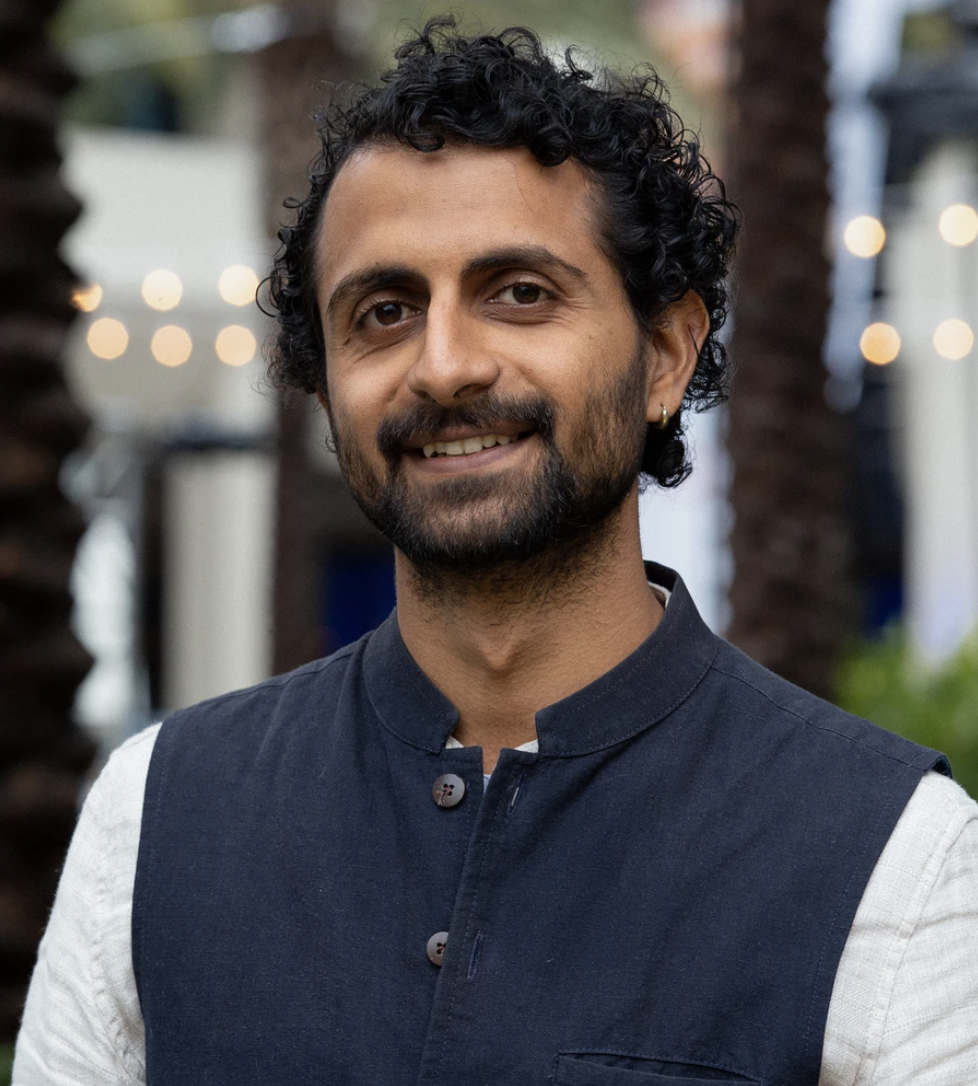
Episode 32: Farmer Rishi on Regeneration, Equity and Representation
Rishi Kumar is a farmer, educator and consultant based in Los Angeles working in the field of regeneration. Rishi learned to farm at Dr. Vandana Shiva’s farm in India. He is an articulate and outspoken advocate for diversity and inclusion in the good food movement. Please follow Rishi on Instagram, and check out his awesome YouTube channel as well as his writings.

Episode 31: Claire Kelloway on Prop 22, Big Tech and Reviving the Anti-Trust Movement
“Prop 22 is about excluding gig workers from basic labor protections.”
From https://www.foodandpower.net/our-team: Claire Kelloway is a senior reporter and researcher with the Open Markets Institute. She is the primary writer for Food & Power, a first-of-its-kind website, providing original reporting and resources on monopoly power and economic concentration in the food system. Her writing on food and agriculture has appeared in the American Prospect, ProPublica, Civil Eats, the Washington Monthly, and more.

Episode 30: Winona LaDuke
“The Line 3 Pipeline goes through the heart of our wild rice territory and wild rice is our most sacred food. This battle is about the wild rice. It is our responsibility to protect the wild rice.”
“People need to understand that this is the Holy Land.”
From http://www.honorearth.org/speaking_engagements : Winona LaDuke is an internationally renowned activist working on issues of sustainable development renewable energy and food systems. She lives and works on the White Earth reservation in northern Minnesota, and is a two time vice presidential candidate

Episode 29: Part 3 of 3, Worker Ownership and the Solidarity Economy, By Errol Schweizer
Worker ownership is what it’s all about. This episode covers different models of worker ownership and cooperative enterprises, with an eye towards creating a solidarity economy that meets the needs of all.
Dedicated to MF DOOM and Riley Gale, whose music continues to inspire.

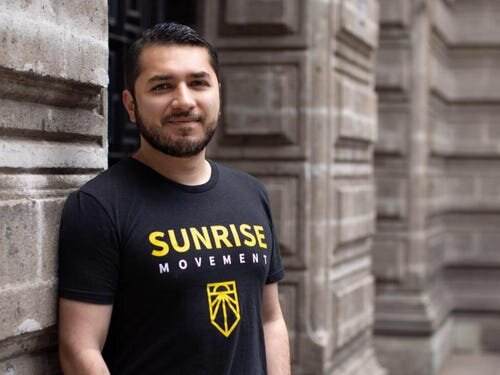
Episode 27: Andres Bernal Talks Money
Andres Bernal, an advisor to Rep. Alexandria Ocasio-Cortez, joins us for a wide ranging discussion on worker cooperatives, Modern Monetary Theory, myth busting the Federal deficit, the need for a Jobs Guarantee and how to fund a Green New Deal.

Episode 26: The COVID Receipts. Part 1 of 3, By Errol Schweizer
The Covid Receipts is Part 1 of a 3 part series diving into the pandemic fueled crisis and its impact on the food system. This episode details the vast inequality in the USA and the inequities in our food industry, the levels of retail consolidation and profiteering, and the impacts on supply chain workers.

Episode 25: Coalition of Immokalee Workers (CIW) and The Fair Food Program
“If you have a lot of purchasing power, you can drive prices down. At the same time, if you have a lot of purchasing power, you can demand more humane conditions, you can demand compliance with fundamental human rights in your suppliers’ operations, you can improve the lives of millions of people… if you decide to wield that same volume purchasing power for good as opposed to evil.”
“The reasons all these mechanisms work are the market consequences in these agreements with the buyers. If a grower is found out of compliance, the buyer has to suspend purchases. All of this comes together to form an actual enforcement of the rights in the Fair Food Code of Conduct. That’s the power of the purchase order.”
“Whatever they call social responsibility in the food industry has been a joke, a fraud… it is absolutely empty and soulless and unreal. It is everything that has not worked and has been done for public relations purposes for the corporations, not the workers. That all became clear when Covid came down and all these outbreaks came to the press, did any of the Buyers of all that meat step up and say that we can’t allow this to keep happening? Not one.”
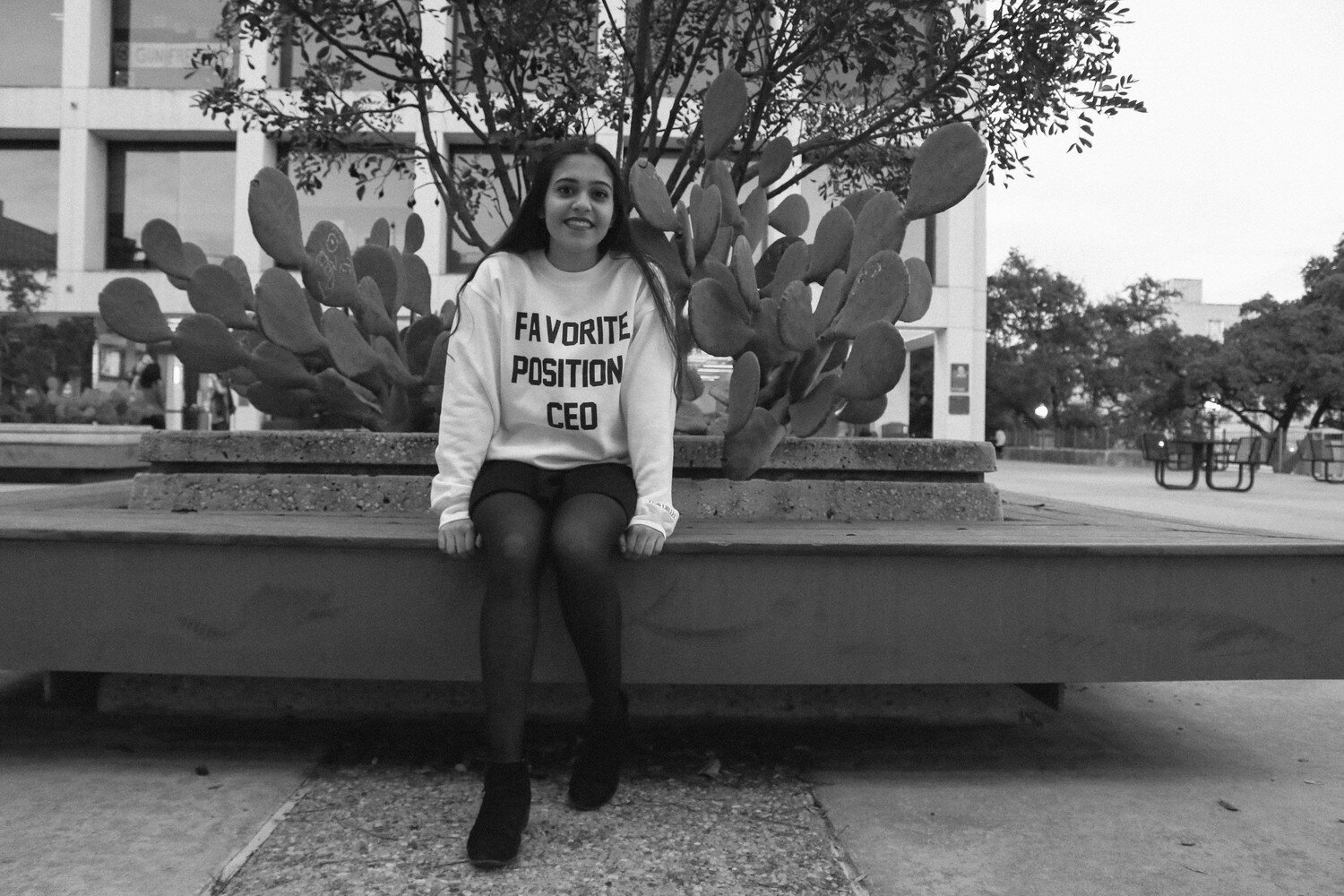
Episode 24: Nishiki Maredia on Retail Innovation and Social Justice Organizing
“The cooperative is great in that you are able to get the best prices but at the same time is a good way to foster community.”
Nishiki Maredia is an Austin, TX based retail professional and a prolific social justice activist and organizer. Her family owns and manages Marigold Market Cafe in Southwest Austin (https://www.instagram.com/marigoldmarketcafe/), a suburban grocery store that caters to a community that craves convenient, trendy and ethically produced foods and beverages. Like many grocery establishments, Marigold Market belongs to a business services cooperative that creates efficiencies and connections for its stakeholders. Nishiki’s efforts to make Austin a more just and inclusive community include organizing with Sunrise Austin (https://www.instagram.com/sunriseatx/), Austin Mutual Aid, DefundAPD, ATX Free Fridge Project, Protect Montopolis, The 2020 ATX Winter Help Guide (https://docs.google.com/document/d/19HgBCE5hUDZFgaHwykSRrcezAbMuOzsR_mfRPWf0bCs/edit ), as well as the Bernie Sanders 2020 Presidential Campaign. Follow Nishiki at https://www.instagram.com/nishikimaredia/ .

Episode 23: Ma'raj Sheikh and Good Food Policy Action in Chicago
“What we’ve learned is that food justice is really racial, economic and land justice.”
From https://www.chicagofoodpolicy.com/our-staff : Ma’raj Sheikh is a daughter of immigrants, descendent of liberation leaders, and a Castanea Fellow. Land, food, and justice are in her blood. Ma’raj has worked across many areas of food system development including soil bioremediation, bioenergy, stakeholder relations, consulting in the edible insect industry, and advancing racial equity in land, food, and water access. As a National Science Foundation Fellow, Ma’raj moved to Iowa from Southern California to learn about industrial agriculture from the belly of the beast - studying Sustainable Agriculture and Community and Regional Planning at Iowa State University. Prior to starting at CFPAC in January of 2020, Ma’raj served as Director of Equity and Community Engagement at Community GroundWorks (now Rooted), where her work focused on improving stable land tenure for Hmong refugee farmers and leading Gardens Network, a partnership with the City of Madison and UW-Extension, that provides support services to a member base of 65+ community gardens across Dane County, WI.
From https://www.chicagofoodpolicy.com/services : CFPAC co-develops, facilitates, advocates for, and supports implementation of policies that advance food justice and food sovereignty in Chicago and across the region. CFPAC envisions a food system where all Chicagoans, regardless of race, class, gender, and/or social identity, have the right to healthy and culturally-appropriate food produced through community-driven, ecologically regenerative, and economically viable processes. The Council recognizes the history and modern maintenance of structural racism in Chicago and across the country that have led to massive inequities in land access, food business ownership, food security, and political power along lines of racial identity. CFPAC works to address these inequities and dismantle racist structures in the food system by building local political power, supporting frontline workers throughout the food system, and facilitating Black/Brown partnerships and understanding.
Donate: https://chicagofoodpolicy.z2systems.com/np/clients/chicagofoodpolicy/donation.jsp?campaign=1&
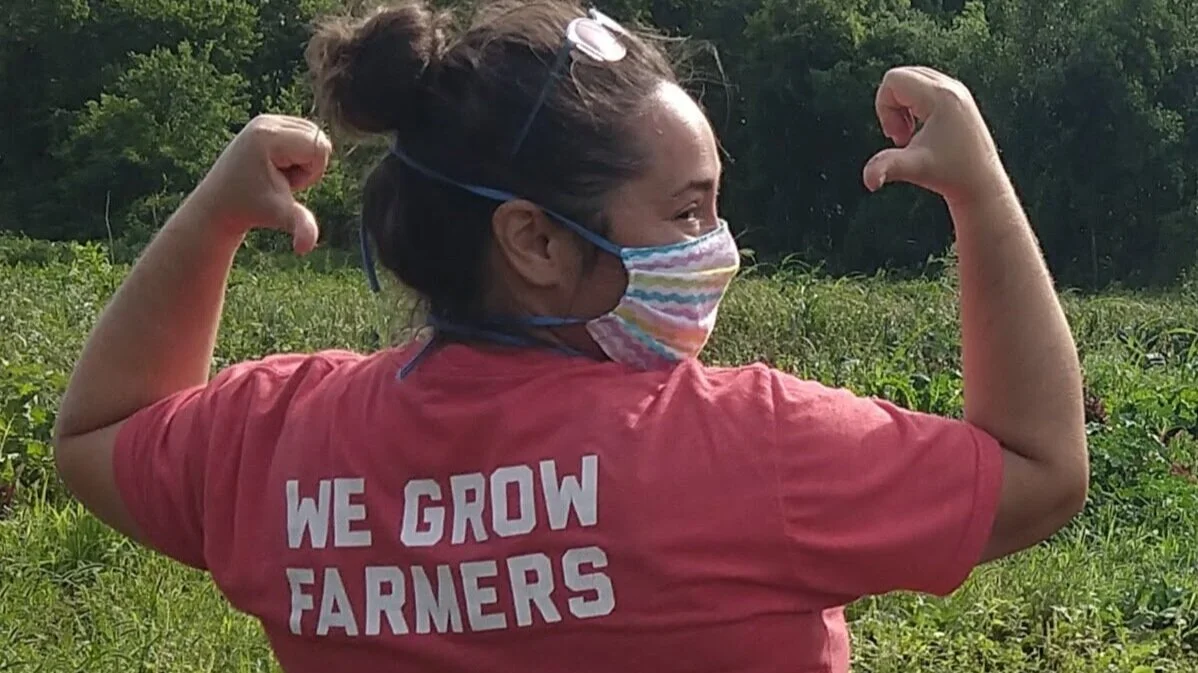
Episode 22: Michelle Akindiya of Farmshare Austin
“The Black preachers coming out of the Civil War were very clear eyed about the priority of land for the Black community to help us move forward with our aspirations for freedom and self-determination…
“Black folk can’t go into any other space and enjoy the autonomy they do in the Black church… it’s a powerful incubator space. ”
From https://www.heberbrown.com/about and https://blackchurchfoodsecurity.net : Rev. Dr. Heber Brown, III is a Community Organizer, Social Entrepreneur, Base Builder, and Network Weaver and Senior Pastor of Pleasant Hope Baptist Church in Baltimore, Maryland. He is the Founding Director of Orita’s Cross Freedom School. Based on the Freedom Schools of the 1960's, Dr. Brown works to reconnect Black youth to their African heritage while providing them hands-on learning opportunities to spark their creative genius and build vocational skills. In 2015 he launched the Black Church Food Security Network a multi-state alliance of congregations working together to inspire health, wealth and power in the Black Community. The BCFSN accomplishes this by partnering with historically African American churches to establish gardens on church-owned land and cultivates partnerships with African American farmers to create a grassroots, community-led food system. Dr. Brown's dedication to service has been widely recognized. He is the recipient of numerous awards including the Ella Baker Freedom Fighter Award and The Afro American Newspaper’s “25 Under 40 Emerging Black History Leaders” award. In 2018, Baltimore Magazine named him a Visionary of the City and the Baltimore City Office of Civil Rights presented him with their Food Justice Award. In 2019, he received the coveted Emerging Leaders Award from the Claneil Foundation and has presented and lectured at many institutions of higher learning including Interdenominational Theological Center (ITC), Drew Theological School, Wake Forest School of Divinity, and the Black Theological Leadership Institute at Princeton Theological Seminary.
The Black Church Food Security Network utilizes an asset-based approach in organizing and linking the vast resources of historically African American congregations in rural and urban communities to advancing food and land sovereignty. They are on a mission to organize the strength and focus the assets of the Black Church toward advancing health (physical and spiritual), economic opportunity and self-determination in the African American community.
To Donate or support the BCFSN: https://blackchurchfoodsecurity.net/donate/
Follow The Checkout on Facebook - Instagram - Twitter.
Stream The Checkout on Apple Podcasts - Spotify - Stitcher - Google Podcast

Episode 21: Benjamin Lorr and The Secret Life of Groceries
“The trucker is emblematic of shifts that have happened throughout the industry whereby the lionization of the consumer has resulted in cuts to the laborer.”
From https://www.benjaminlorr.net/bio/: BENJAMIN LORR is the author of The Secret Life of Groceries, an expose of the dark underbelly of the American food industry, and Hell-Bent, a critically acclaimed exploration of the Bikram Yoga community that first detailed patterns of abuse and sexual misconduct by guru Bikram Choudhury. Lorr is a graduate of Montgomery County public schools and Columbia University. He lives in New York City.

Episode 20: Rev. Heber Brown of The Black Church Food Security Network
“The Black preachers coming out of the Civil War were very clear eyed about the priority of land for the Black community to help us move forward with our aspirations for freedom and self-determination…
“Black folk can’t go into any other space and enjoy the autonomy they do in the Black church… it’s a powerful incubator space. ”
From https://www.heberbrown.com/about and https://blackchurchfoodsecurity.net : Rev. Dr. Heber Brown, III is a Community Organizer, Social Entrepreneur, Base Builder, and Network Weaver and Senior Pastor of Pleasant Hope Baptist Church in Baltimore, Maryland. He is the Founding Director of Orita’s Cross Freedom School. Based on the Freedom Schools of the 1960's, Dr. Brown works to reconnect Black youth to their African heritage while providing them hands-on learning opportunities to spark their creative genius and build vocational skills. In 2015 he launched the Black Church Food Security Network a multi-state alliance of congregations working together to inspire health, wealth and power in the Black Community. The BCFSN accomplishes this by partnering with historically African American churches to establish gardens on church-owned land and cultivates partnerships with African American farmers to create a grassroots, community-led food system. Dr. Brown's dedication to service has been widely recognized. He is the recipient of numerous awards including the Ella Baker Freedom Fighter Award and The Afro American Newspaper’s “25 Under 40 Emerging Black History Leaders” award. In 2018, Baltimore Magazine named him a Visionary of the City and the Baltimore City Office of Civil Rights presented him with their Food Justice Award. In 2019, he received the coveted Emerging Leaders Award from the Claneil Foundation and has presented and lectured at many institutions of higher learning including Interdenominational Theological Center (ITC), Drew Theological School, Wake Forest School of Divinity, and the Black Theological Leadership Institute at Princeton Theological Seminary.
The Black Church Food Security Network utilizes an asset-based approach in organizing and linking the vast resources of historically African American congregations in rural and urban communities to advancing food and land sovereignty. They are on a mission to organize the strength and focus the assets of the Black Church toward advancing health (physical and spiritual), economic opportunity and self-determination in the African American community.
To Donate or support the BCFSN: https://blackchurchfoodsecurity.net/donate/
Follow The Checkout on Facebook - Instagram - Twitter.
Stream The Checkout on Apple Podcasts - Spotify - Stitcher - Google Podcast

Episode 19: Leah Penniman of Soul Fire Farm
“We appreciate the legacy of George Washington Carver at Tuskegee University, who convinced an entire generation of farmers in the late 18th century to practice regenerative… cover crops, mulching, composting, diversifying their crops…
“ It’s a tragedy to rob Organic of it’s proud history to imagine that it is new, an innovation of the West. ”
From https://www.farmingwhileblack.org/team and https://www.soulfirefarm.org : Leah Penniman is a Black Kreyol educator, farmer/peyizan, author, and food justice activist from Soul Fire Farm in Grafton, NY. She co-founded Soul Fire Farm in 2011 with the mission to end racism in the food system and reclaim our ancestral connection to land. Leah holds an MA in Science Education and BA in Environmental Science and International Development from Clark University, and is a Manye (Queen Mother) in Vodun. Leah has been farming since 1996 and teaching since 2002. Soul Fire Farm is an Afro-Indigenous centered community farm committed to uprooting racism and seeding sovereignty in the food system. Their food sovereignty programs reach over 10,000 people each year, including farmer training for Black and Brown growers, reparations and land return initiatives for northeast farmers, food justice workshops for urban youth, home gardens for city-dwellers living under food apartheid, doorstep harvest delivery for food insecure households, and systems and policy education for public decision-makers.
Indispensable resources from Soul Fire Farm:
https://www.soulfirefarm.org/media/publications/
https://www.soulfirefarm.org/portfolio-items/food-sovereignty-action-steps/
https://www.soulfirefarm.org/portfolio-items/equity-guidelines/
https://www.soulfirefarm.org/media/farming-while-black/
Take Action:
Policy demands: https://www.soulfirefarm.org/get-involved/take-action/
Reparations: https://m4bl.org/wp-content/uploads/2020/05/Reparations-Now-Toolkit-FINAL.pdf
Fairness for Farmworkers Act: https://www.harris.senate.gov/imo/media/doc/Fairness%20for%20Farm%20Workers%20Act%20One%20Pager.pdf
Justice for Black Farmers Act: https://www.motherjones.com/food/2020/11/black-farmers-have-been-robbed-of-land-a-new-bill-would-give-them-a-quantum-leap-toward-justice/?fbclid=IwAR1unD-AUvcnYkDBkV2dHBVxUyyiaZS8NtpYTq1O490XAqucUMT3yznQVu4
More on George Washington Carver: https://www.discovermagazine.com/environment/george-washington-carvers-legacy-went-beyond-peanuts
Donate: https://www.soulfirefarm.org/support/
Follow The Checkout on Facebook - Instagram - Twitter.
Stream The Checkout on Apple Podcasts - Spotify - Stitcher - Google Podcast
“ It’s a tragedy to rob Organic of it’s proud history to imagine that it is new, an innovation of the West. ”
From https://www.farmingwhileblack.org/team and https://www.soulfirefarm.org : Leah Penniman is a Black Kreyol educator, farmer/peyizan, author, and food justice activist from Soul Fire Farm in Grafton, NY. She co-founded Soul Fire Farm in 2011 with the mission to end racism in the food system and reclaim our ancestral connection to land. Leah holds an MA in Science Education and BA in Environmental Science and International Development from Clark University, and is a Manye (Queen Mother) in Vodun. Leah has been farming since 1996 and teaching since 2002. Soul Fire Farm is an Afro-Indigenous centered community farm committed to uprooting racism and seeding sovereignty in the food system. Their food sovereignty programs reach over 10,000 people each year, including farmer training for Black and Brown growers, reparations and land return initiatives for northeast farmers, food justice workshops for urban youth, home gardens for city-dwellers living under food apartheid, doorstep harvest delivery for food insecure households, and systems and policy education for public decision-makers.
Indispensable resources from Soul Fire Farm:
https://www.soulfirefarm.org/media/publications/
https://www.soulfirefarm.org/portfolio-items/food-sovereignty-action-steps/
https://www.soulfirefarm.org/portfolio-items/equity-guidelines/
https://www.soulfirefarm.org/media/farming-while-black/
Take Action:
Policy demands: https://www.soulfirefarm.org/get-involved/take-action/
Reparations: https://m4bl.org/wp-content/uploads/2020/05/Reparations-Now-Toolkit-FINAL.pdf
Fairness for Farmworkers Act: https://www.harris.senate.gov/imo/media/doc/Fairness%20for%20Farm%20Workers%20Act%20One%20Pager.pdf
Justice for Black Farmers Act: https://www.motherjones.com/food/2020/11/black-farmers-have-been-robbed-of-land-a-new-bill-would-give-them-a-quantum-leap-toward-justice/?fbclid=IwAR1unD-AUvcnYkDBkV2dHBVxUyyiaZS8NtpYTq1O490XAqucUMT3yznQVu4
More on George Washington Carver: https://www.discovermagazine.com/environment/george-washington-carvers-legacy-went-beyond-peanuts
Donate: https://www.soulfirefarm.org/support/
Follow The Checkout on Facebook - Instagram - Twitter.
Stream The Checkout on Apple Podcasts - Spotify - Stitcher - Google Podcast

Episode 18: Brian Yazzie On Cooking In Two Worlds
“We’re fighting for our indigenous rights, we’re fighting for what is beneath our feet, what is our food…
“I use the philosophy of cooking in two worlds, having that ancestral memory but with the modern techniques, with the modern times.”
From https://www.yazziethechef.com: Brian Yazzie (a.k.a. Yazzie the Chef) is a Diné Chef from Dennehotso, Arizona which is located on the Northeastern part of the Navajo Nation. He currently resides in Saint Paul, MN and has a degree in Associate of Applied Science (AAS) in Culinary Arts from Saint Paul College. Yazzie focuses on bringing together hyper-local indigenous ingredients from the streams, rivers, and forests to revitalize healthy indigenous cuisine.
